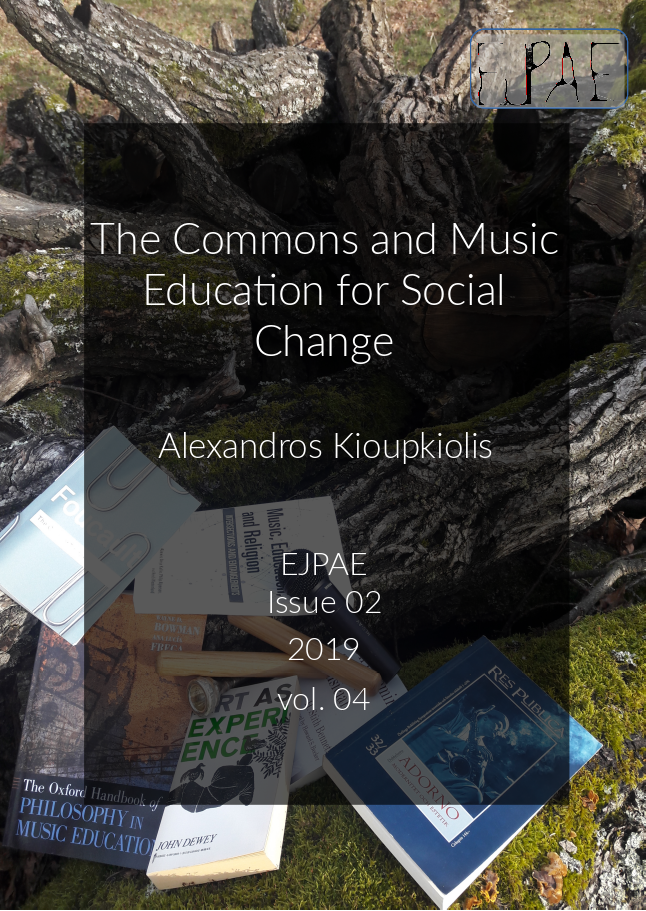The Commons and Music Education for Social Change
DOI:
https://doi.org/10.5281/zenodo.3674136Keywords:
commons, music, education, social changeAbstract
This paper spells out the value of an alternative paradigm of the commons for thinking social change and for refiguring education, in general, and music education, in specific. It sets out from the different strands of thought on the commons as a collaborative mode of living, acting and organizing on terms of collective autonomy, equal freedom, creativity, diversity and participation. It analyses the bearing of the various commons on contemporary music practices –horizontal work, open-source musicianship, individual experimentation, collectivized authorship- and education. Education as commons is transformed into a collective good which is co-created by all parties involved on a footing of equality, autonomy and creative freedom. Commoning music education, more specifically, would imply: an opening of music, and education in music, to any and all; a blurring of the divides between professionals and amateurs, teachers and students, producers and consumers; an endeavour to minimise unequal power relations, whereby the teacher relinquishes the role of the authority and becomes an assistant, an advisor, an animator and a facilitator; collective self-governance of educational processes; equal freedom through individual creativity, diversity, openness, collaboration, hybridity and experiment.

Downloads
Published
Issue
Section
License
EJPAE provides immediate open access to all its published content. Users do not need to register or pay to read content.
https://creativecommons.org/licenses/by/4.0/
Authors of content published in European Journal of Philosophy in Arts Education (EJPAE) retain the copyright to their works. Content is free to be used by anyone as long as you "[...] give appropriate credit, provide a link to the license, and indicate if changes were made. You may do so in any reasonable manner, but not in any way that suggests the licensor endorses you or your use." and "No additional restrictions — You may not apply legal terms or technological measures that legally restrict others from doing anything the license permits." (from the Creative Commons licence agreement)
EJPAE does not charge any author or publication fees.
Authors are encouraged to deposit the final published version of their article for self-archiving (author's personal website) and/or archiving in an institutional repository immediately upon publication.




